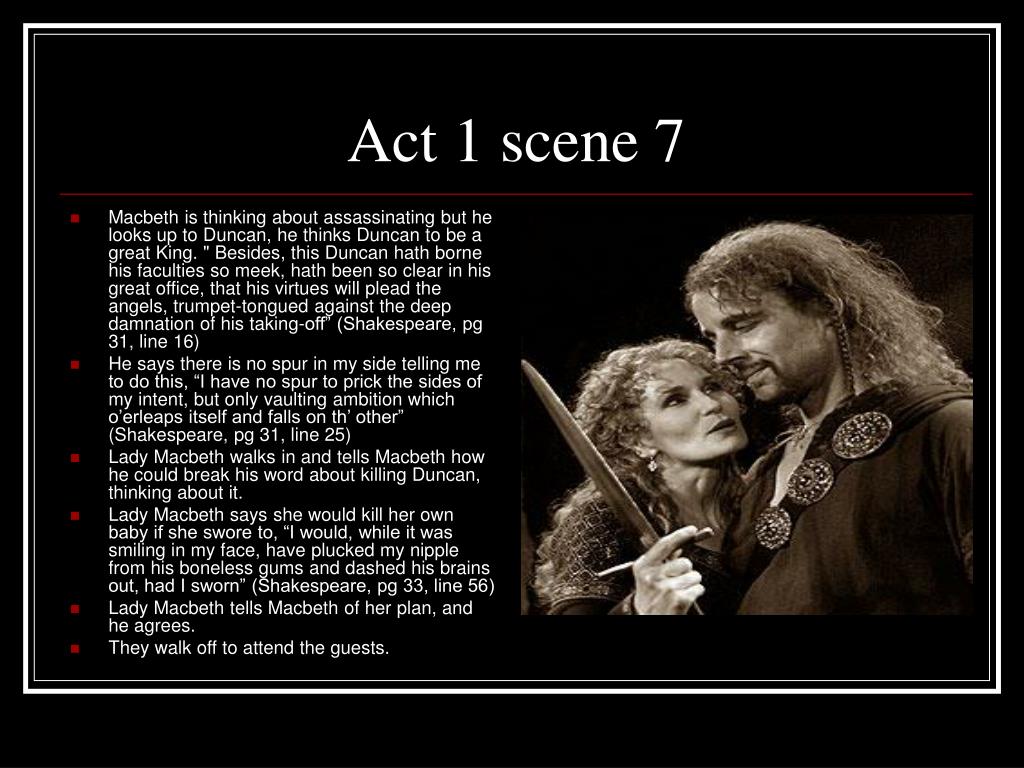

Scenes 2 & 3 of the second Act bring the notion of consequences and religion into sharper focus. We will consider the significance of gender and religion in relation to the guilt that the Macbeths feel, looking at staging, atmosphere, symbolism and foreboding. This hour’s extract depicts the tense guilty atmosphere that the Macbeths experience moments after carrying out King Duncan’s regicide. This session will reflect upon Shakespeare’s use of symbolism, figurative language and staging. It is designed for Year 10s & 11s who are new to the play but want to gain a solid understanding of the play.Īs Macbeth prepares to commit the most disloyal act imaginable for Jacobean society Banquo and Fleance display their mutual duty to one another in Fleance’s filial respect for his father and Banquo’s paternal care for his son. Each class chronologically continues through the play to assist students’ awareness of Jacobean context, plot progression, use of language and audience responses. This course covers Act 2 of Shakespeare’s Macbeth. In this hour we will consider the rising tension in the plot, and look at Shakespeare’s use metaphors, repetition, personification and rhetorical questions to present the deceitful nature of the Macbeths. After reading the extract aloud we will consider the importance of the soliloquy, stage directions, tone of voice, characters sharing lines, figurative language and foreboding.īy the end of Act 1, audiences would be very tense as they anticipate the Macbeths plot against Duncan. When Jacobean audiences first met Lady Macbeth, they would likely have had mixed feelings.

We will consider the significance of kingship and duty before discussing the relevance of staging techniques, figurative language and the divine right of kings. This 48-line extract depicts king Duncan’s decision to formally name prince Malcolm his heir, pronouncing him the Prince of Cumberland. We will read the extract aloud before considering Shakespeare’s use of punctuation, lines, staging, figurative language and foreboding. This extract occurs while King Duncan hears news of the battle against the ‘merciless MacDonald’, revealing the bravery and courage of Duncan’s warriors. We will read the extracts aloud as a group before considering Jacobean attitudes towards witches, Shakespeare’s use of lines, meter and language to construct these threatening, strange antagonists. Two short extracts from Act 1 Scene 1 and Act 1 Scene 3 introduce the witches to us. It is designed for Year 10s & 11s who are fairly new to the play but want to gain a solid understanding of the play Each class covers a new scene to assist students’ awareness of Jacobean context, staging, props and audiences. This course covers Act 1 of Shakespeare’s Macbeth.


 0 kommentar(er)
0 kommentar(er)
